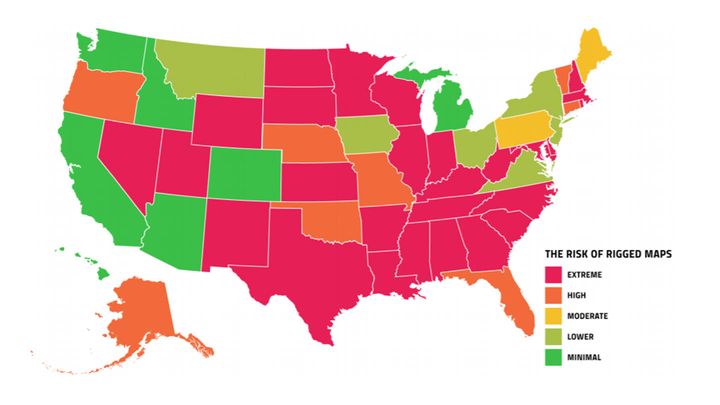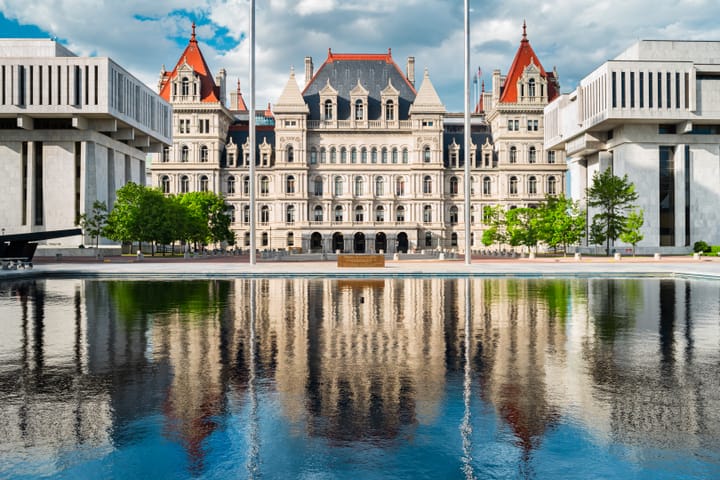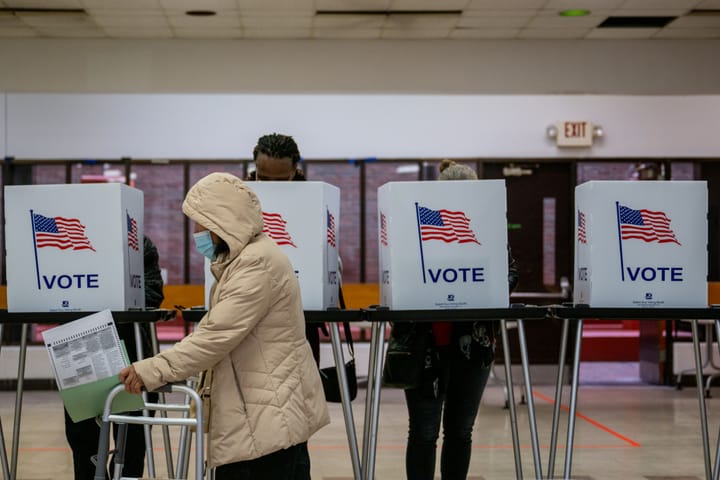Copyright, Truthout.org. Reprinted with permission. Click here to support Truthout.
A new report has found that 35 states are at risk of having their election districts “rigged” to unfairly favor one party during this year’s redistricting cycle, with over half of the country at “extreme” risk.
“The redistricting laws in these states provide little protection against politicians manipulating district maps for partisan or personal gain,” read the report by RepresentUs, a non-partisan organization that aims to fight political corruption. “Unless these systems change in the next few months, more than 188 million people will live with the threat of gerrymandering and rigged maps for the next 10 years.”
The U.S. is conducting its redistricting this year and next, and the results of that redistricting will remain until the next census 10 years later. This year’s redistricting cycle is already looking to be chaotic due to the census delays caused by the pandemic and Republicans’ direct attacks on voting across the country.
In many places, the state legislature draws the maps which are approved by the governor. If one party controls the House, Senate and governor’s office, they have enormous power to control whose votes count and which party gets an unfair advantage for the next decade. Currently, Republicans control 61 state legislative chambers, as opposed to Democrats’ 37, and control the House, Senate and governorship in 23 states as opposed to Democrats’ 15.
Many of the states at “high” or “extreme” risk of gerrymandering according to RepresentUs are crucial battleground areas like Texas, Nevada and most of the South. Over 188 million voters will be affected by these unfair redistricting efforts, the report finds. Only seven states like California and Colorado received a “minimal” risk rating.
High risk states, the report finds, are at such risk of partisan influence because of procedural factors in the redistricting process that allow politicians to control how election maps are drawn. Many states have legal and procedural protections that grant politicians free reign over how districts are drawn without public input or oversight. Additionally, the report says, 20 states make it very difficult to challenge the maps in court.
Gerrymandering disenfranchises voters by either using them for partisan advantage or sidelining them in order to gain an advantage in other places. The practice is often racist — Republicans tend to “pack” nonwhite voters who lean Democratic into strangely-drawn districts and then draw other districts with a more balanced slate of voters, who are usually white. Racial gerrymandering is illegal, but gerrymandering is very difficult to prove in court.
Both parties benefit from gerrymandering in one way or another, but the last redistricting process led to four times as many states with Republican-skewed districts than Democratic ones. The 2011-2012 redistricting process, which gave Republicans 16 to 17 seats in the House, also led to some of the most gerrymandered and racially discriminatory maps in the U.S.’s history.
Some states have reformed their processes since the last redistricting process, but, according to a recent report by the Brennan Center for Justice, some states now have even more room for unfair processes. Not only that, but “it’s getting easier to draw discriminatory maps,” said the Brennan Center’s Michael Li. Computer programs can spit out thousands of maps in minutes, and politicians simply have to choose which one they like best. “It’s deeply undemocratic because it basically renders elections meaningless,” said Li.
The answer to such dire redistricting threats, RepresentUs concludes, is the For the People Act, or H.R. 1. “This report makes it clear that gerrymandering is a national crisis that needs an urgent and bold solution,” said RepresentUs co-founder Josh Silver in a statement. “Politicians are already preparing to pick their voters during this year’s redistricting. But with the For the People Act, Congress has a chance to stop them before they get started.”
H.R. 1 is a major election reform bill supported by the Democrats that, among many other things, aims to prevent gerrymandering by making it easier to show when a map gives unfair partisan advantage. If a map is shown to be unfairly biased, H.R. 1 forces it to be redrawn. The legislation also has provisions protecting nonwhite communities, including increased transparency for redistricting and independent commissions to draw maps rather than politicians.
Republicans are staunchly opposed to H.R. 1, which also has proposals to make it easier to vote like automatic voter registration in every state. But the reform bill is so popular — and gerrymandering is extremely unpopular — that Republicans haven’t been able to sway voters against it. Despite its popularity, however, the bill, which has passed the House, has very little likelihood of passing the Senate while the filibuster is in place.
Read more:



